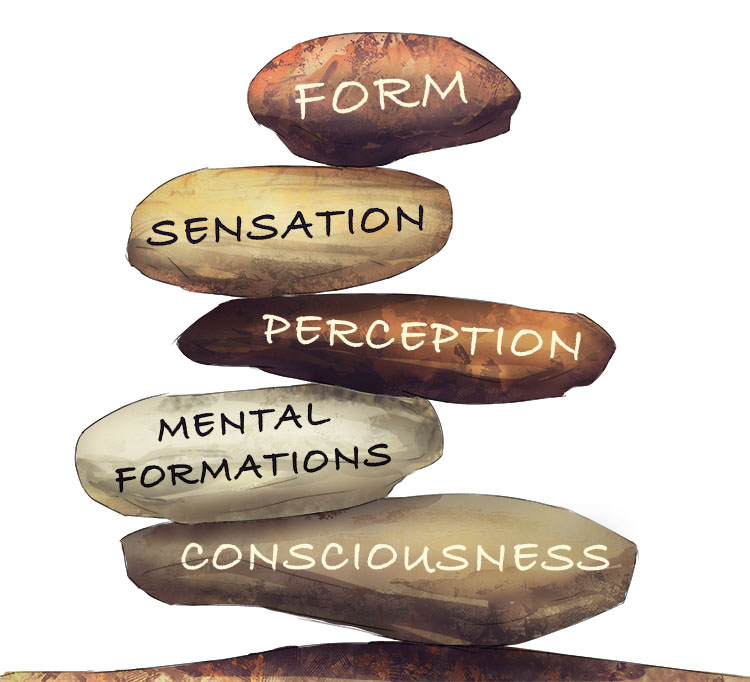Anatta – Belief that there is no fixed self / no soul
(Pronounced uh-nah-tah)
To remember the meaning of the Buddhist term Anatta, use the following mnemonic:
Under a tarpaulin (anatta) was the body, sticking out were the shoes but the strange thing was – they had no soles (no soul).

In Buddhist philosophy, anatta refers to "non-self" or "absence of separate self." Its opposite is atman (see Atman in Hinduism), the idea of a permanent soul or self which survives transmigration, which is rejected by Buddhists.
The Buddha taught that what is normally thought of as the "self" is a collection of constantly changing physical and mental constituents known as the five "skandhas".
The skandhas are:
- Form (the body)
- Sensation (feelings)
- Perception (the ability to recognise what things are)
- Mental formations (thoughts)
- Consciousness (awareness of things)

Buddhists believe that the five skandhas of a living being are "not-self" and that clinging to them as if they were the self or soul (atman) brings disappointment. They say that because the five skandhas are changing all the time, the self is also constantly changing, so cannot be permanent.




